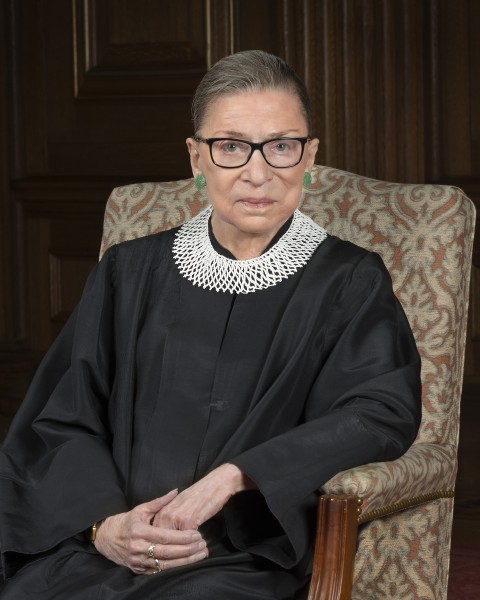Ruth Bader Ginsburg saw the biblical Deborah as a role model
When I asked her why, she talked about another role model: Pauli Murray.

Last February, Union Theological Seminary hosted Supreme Court Justice Ruth Bader Ginsburg for our annual Judith Davidson Moyers Women of Spirit Lecture. It’s an honor given to women whose work is motivated and energized by their faith and beliefs. We at Union were honored that she came, especially since it proved to be one of her last public appearances.
The evening was electric.
When Ginsburg stepped onto the stage on the arm of Bill Moyers, who was interviewing her, Union’s James Chapel went wild with applause. There she was, a woman of such small stature, her hair pulled tightly back in a schoolmarmish bun, her face serious—no cheery hand waving, no sparkling smile of the kind women are usually forced to master. It was clear we had before us not a movie star or campaigning politician but a Supreme Court justice of singular moral clarity and authority—and one who, unlike so many of her conservative colleagues, was motivated by her faith to protect the rights of others, not limit them. She was a hero to many in the room.




